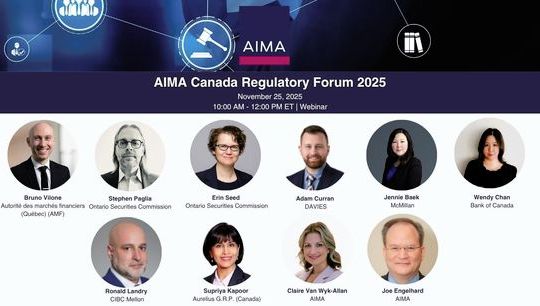The investment manager regimes in the Cayman Islands and BVI
By Anthony McKenzie; Alastair King, Carey Olsen
Published: 30 November 2021
Intro
Asia-based sponsors working with multi-jurisdictional fund structures have long been familiar with the use of an offshore entity acting as either the investment manager or advisor. Over the last couple of years there has been increasing clarity of the options available, with both the maturation and increased prevalence of fund managers registered in the British Virgin Islands (BVI) pursuant to the Investment Business (approved managers) Regulations (AMR) and the BVI Securities and Investment Business Act (BVI SIBA), and the enhancement of the Cayman Islands' regulatory framework following the introduction of the International Tax Co-operation (Economic Substance) Act and its related Regulations (ES Law) and welcome updates to the Securities Investment Business Act (Cayman SIBA).
This article discusses some of the key features of the investment manager regimes that have a lighter regulatory touch in the two jurisdictions; namely entities registered with the Cayman Islands Monetary Authority (CIMA) as a ‘Registered Person’ pursuant to Cayman SIBA (which has replaced the previous ‘Excluded Person’ regime), and those registered with the BVI Financial Services Commission (FSC) as an approved manager pursuant to AMR.
Fund managers established outside of BVI and the Cayman Islands will not normally require registration or licensing in such jurisdiction, provided that they, and the funds they manage, have no physical presence within that jurisdiction (save for the funds' registered agents and offices). There are no specific qualifications or other requirements on such overseas managers imposed by BVI or the Cayman Islands.
Applicability and eligibility
Most Cayman Islands managers and advisors will fall under the Cayman SIBA requirements by virtue of carrying out ‘securities investment business’, which captures managing, dealing in, arranging deals in, and advising on deals in, securities, and acting as an ‘EU Connected Manager’.
An entity may apply for registration as a Registered Person rather than full licensing under Cayman SIBA if it is:
- A company within a group of companies carrying on securities investment business exclusively for one or more companies within the same group.
- An entity with a registered office in the Cayman Islands and carries on securities investment business exclusively for ‘sophisticated persons’, ‘high net worth persons’, or companies, partnerships or trusts whose shareholders, limited partners or unit holders are all sophisticated persons and/or high net worth persons.
- An entity regulated in respect of securities investment business by a recognised overseas regulatory authority in the country or territory (other than the Cayman Islands) in which the securities investment business is being conducted (e.g., the Monetary Authority of Singapore, the China Securities Regulatory Commission, the Financial Services Agency of Japan and the Securities and Futures Commission of Hong Kong).
BVI managers and advisors are eligible to apply to become Approved Managers if they will be (a) managing aggregate assets worth no more than US$400 million if managing open-ended funds and/or aggregate capital commitments of no more than US$1 billion if managing closed-ended funds; and (b) providing advice only to the following categories of clients:
- Private or professional funds registered in BVI or in a recognised jurisdiction under BVI SIBA
- Closed-ended funds, registered under the laws of BVI with the characteristics of a private or professional fund
- Persons affiliated with a fund structure under 1 and 2 above.
- Any fund domiciled in a recognised jurisdiction with the characteristics of a private or a professional fund (eg the Cayman Islands, China, Singapore, Australia, Japan and Hong Kong)
- Foreign funds registered in a non-recognised jurisdiction with the characteristics of a private, professional or closed-ended fund which invest all or a substantial part of their assets in a fund structure under 1 or 2 above
- Such other person(s) as the FSC may approve on a case-by case basis.
Registration process
Both registrations involve a relatively straightforward application form setting out certain details about, and declarations/CVs from, the directors, significant shareholders and clients of the prospective Registered Person or Approved Manager.
Consistent with international practice, Registered Persons must also include in their application details of their Anti-Money Laundering Compliance Officer, Money Laundering Reporting Officer and Deputy MLRO. Approved Managers only need to appoint a Money Laundering Reporting Officer, but they do need to submit a copy of the written policies and procedures they have in place to combat money laundering, terrorism financing and proliferation financing (CIMA is not currently asking for these to be filed in respect of Registered Persons, but they do need to have been adopted).
In addition, the Approved Manager application requires both a copy of the investment management or advisory agreement between the applicant and each fund (or person) that it intends to act for upon commencement of ‘relevant business’, and written confirmation of the agreement to act from its BVI legal practitioner.
Provided CIMA or the FSC is satisfied that the application is complete and that the applicant's shareholders and the directors or senior officers are ‘fit and proper persons’ it will then proceed to register the Registered Person or Approved Manager. An Approved Manager may commence business if the FSC does not raise any questions in the seven days following submission of a completed application. CIMA has not provided any such timeline but generally acknowledges registrations of Registered Persons within two weeks.
Costs
The application/annual renewal fees for a Registered Person and Approved Manager are US$6,100/US$6,100 and US$1,000/US$1,500 respectively. Note however that Approved Managers need to appoint an ‘Authorised Representative’ to liaise with the FSC, which creates an additional cost.
There will be legal costs with either application and all Cayman Islands and BVI entities (regulated or unregulated) are required to appoint a licensed registered office provider/registered agent in the respective jurisdiction.
On-going requirements
As regulated entities, both Registered Persons and Approved Managers have several on-going requirements in additional to those of unregulated entities in the Cayman Islands and BVI.
Similar to CIMA-registered funds, Registered Persons must appoint at least two individual directors/managers or one corporate director/manager, each registered with CIMA under the Directors Registration and Licensing Act 2014. Unlike entities holding a full CIMA licence under Cayman SIBA, Registered Persons are (a) not required to submit annual financial statements or business plans, (b) not subject to pre-approval of any change of directors, shareholders or beneficial owners, and (c) not subject to Cayman SIBA's Conduct of Business and Financial Requirements. An annual declaration needs to be filed and CIMA must be notified within 21 days of any change to the information set out in the Registered Person's application form or annual declaration.
Approved Managers also need to have two directors appointed at all times (one of whom must be an individual) although there are no additional registration requirements for the directors in BVI. In addition to an annual return to be filed each January, unaudited financial statements need to filed within six months after the end of the financial year. The FSC must be notified within 14 days of any change to the information set out in the Approved Manager's application form or of any matter which has, or is likely to have, a material impact or significant regulatory impact on the Approved Manager or its ‘relevant business’.
Economic substance analysis
The other key regulatory consideration for fund sponsors is that of meeting the requirements of the applicable economic substance regime.
In the Cayman Islands, ‘relevant entities’ carrying out ‘relevant activities’ are required to meet an economic substance test (Cayman ES Test) in respect of gross income deriving from that activity. Helpfully ‘investment funds’ (including entities through which they invest) are not ‘relevant entities’ and therefore not subject to a Cayman ES Test. Conversely, Registered Persons will likely be a ‘relevant entity’, but ‘fund management business’ is the only management limb of Cayman SIBA caught within the ‘relevant activities’. A Registered Person only acting as an advisor offering non-discretionary advice will therefore likely have no Cayman ES Test to satisfy.
In BVI the corresponding definition of ‘fund management business’ is restricted to "the conduct of an activity that requires the legal entity to hold an investment business license pursuant to section 4 and category 3 of Schedule 3 of the Securities and Investment Business Act, 2010". 'Approved Managers' do not currently need to hold an investment business license so fall outside the definition and therefore have no economic substance test to meet in BVI (other than the engagement of its registered office and authorised representative).
Conclusion
The Registered Person and Approved Manager regimes provide helpful, light regulatory touch options for sponsors looking to set up an offshore fund manager or investment advisor. By highlighting the nuances between the two regimes sponsors should have a clearer insight as to which is more suitable for their needs. Whichever option is chosen, Carey Olsen can assist with most aspects of the process, from initial structuring advice, to entity incorporation, through to registration and advice on any on-going requirements.
This article is written by Alastair King
A Chinese version of this piece can also be read here.






